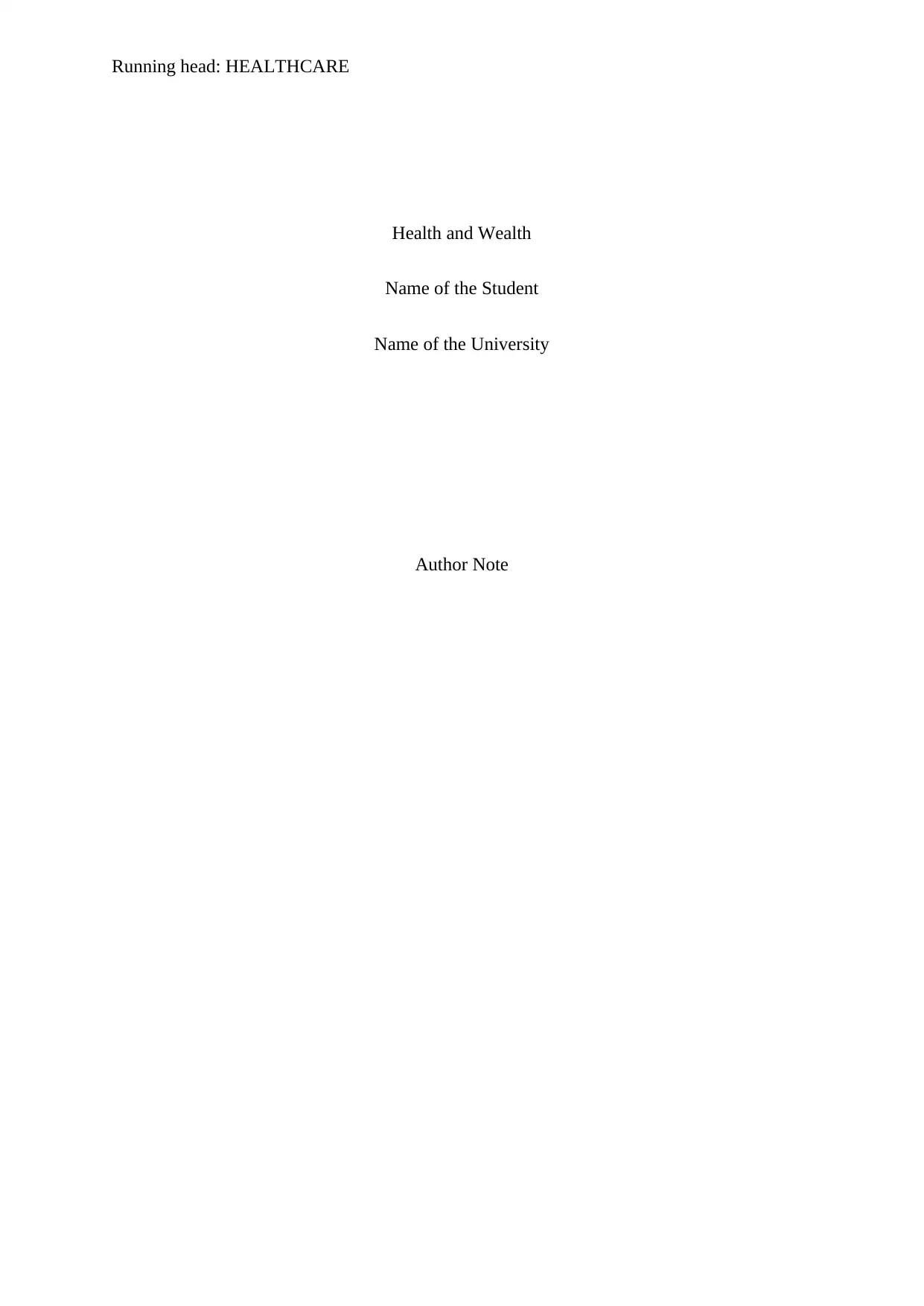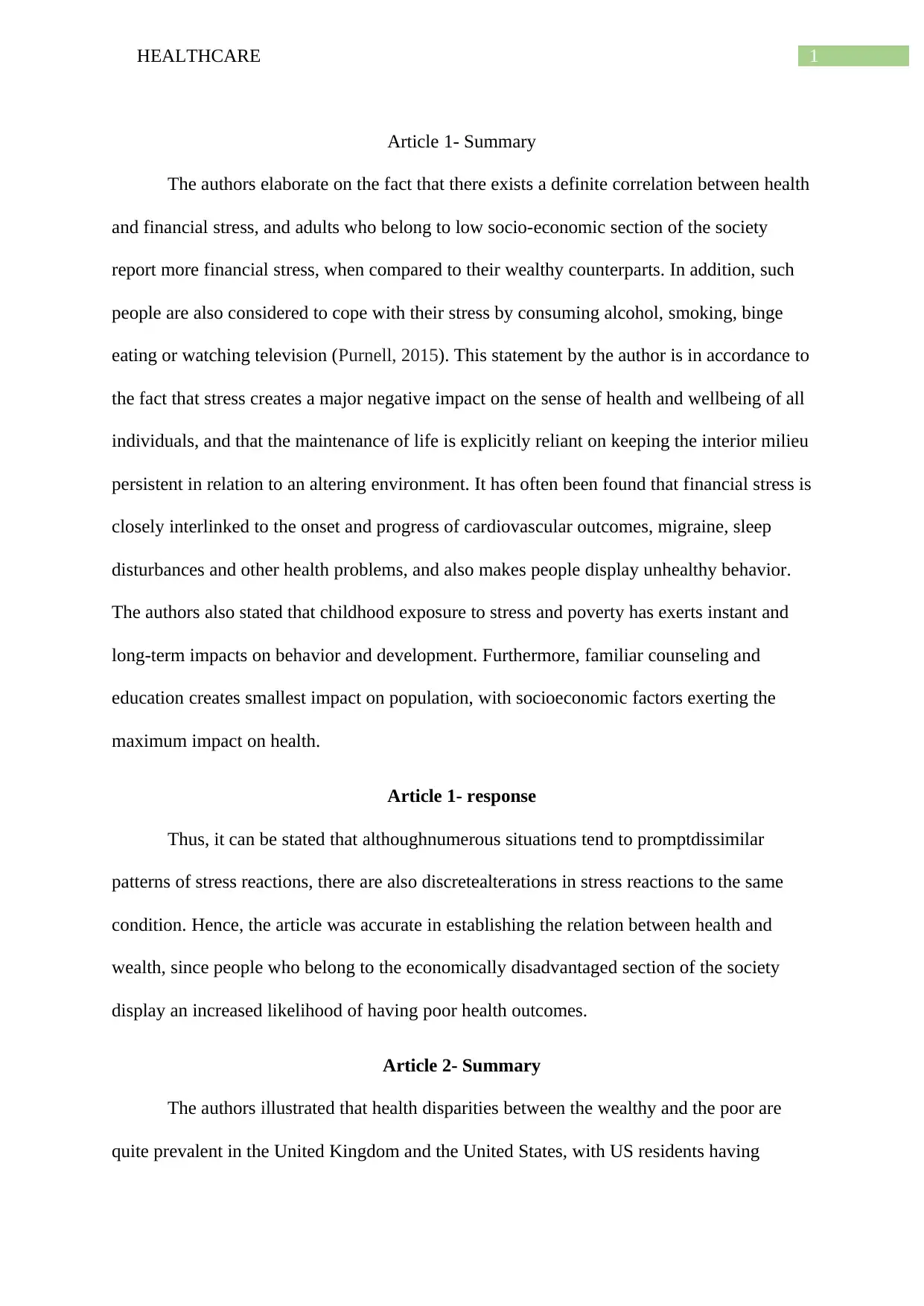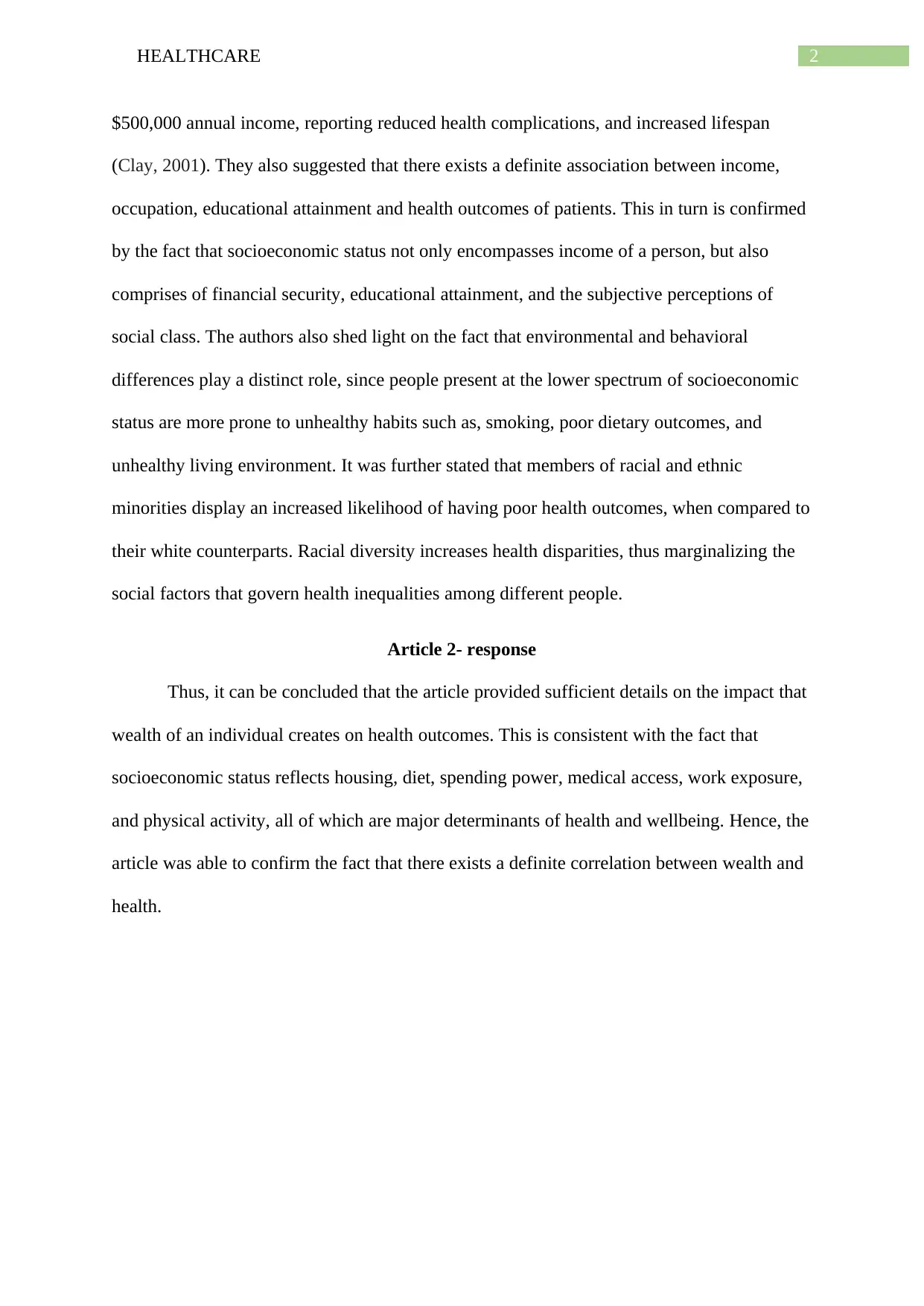Health and Wealth: Analysis of Socioeconomic Impact Report
VerifiedAdded on 2022/12/19
|4
|639
|31
Report
AI Summary
This report analyzes the relationship between health and wealth, examining how socioeconomic factors influence health outcomes. It discusses the impact of financial stress, income, and education on overall wellbeing, drawing on research that highlights disparities in health outcomes based on socioeconomic status. The report summarizes two articles that explore the correlation between wealth and health, including the impact of poverty and lifestyle choices on health. The analysis also considers the role of racial and ethnic disparities in health outcomes and the importance of addressing these inequalities. The report concludes by emphasizing the significance of socioeconomic status as a major determinant of health and wellbeing, reinforcing the need to consider these factors when addressing public health challenges.
1 out of 4











![[object Object]](/_next/static/media/star-bottom.7253800d.svg)